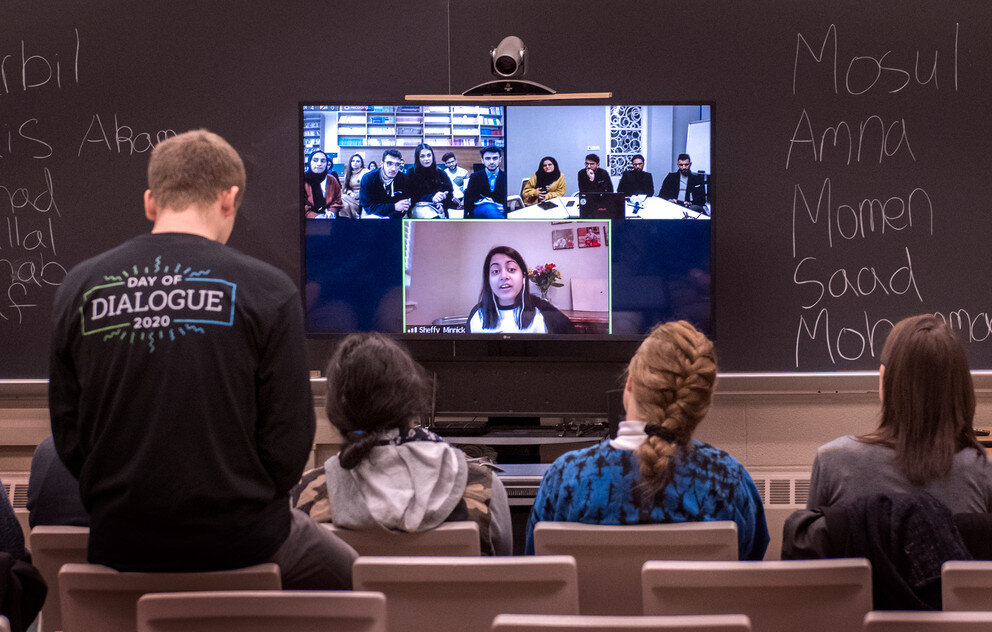
And we can’t solve problems without small-group facilitators.
Most of us approach problems with a narrow vision of what is not working. Facilitators encourage small groups to discover a more comprehensive view. In order to do that, we invite student facilitators to develop a unique mindset and skillset for this purpose.
Since 2002, over 1,300 students have completed at least one semester of professional facilitator training.
Using dialogue as a tool, our facilitators help groups to examine problems by exploring divergent views of people from a variety of social positions.
Participants get the chance to disagree meaningfully and think together.
We have hosted over 52,861 dialogues and counting.
OUR VERSION OF PUBLIC DIPLOMACY
We envision a world where small-group facilitators can use dialogue as a tool to enable citizens on both sides of a border (whatever that border is) to solve their problems together. In our view, this is “true” public diplomacy. And it is instrumental in supporting cross-border peace and security.
Read about our decade of online dialogues with partners around the world in our latest end of year report.
We often “tailor” our programs upon request. Anyone—both affiliated with or independent of Penn State—wanting to have their students, organization, community, etc. experience facilitated dialogue can make a request.
Most of us have never experienced what it is to operate in a “non-homogenous” community or organization that honors and uplifts our differences, not because doing so "looks good,” but because it is good. That unusual environment is what we have been building here at World in Conversation for two decades. And like all things that humans create, it’s always a dynamic work in progress.



































